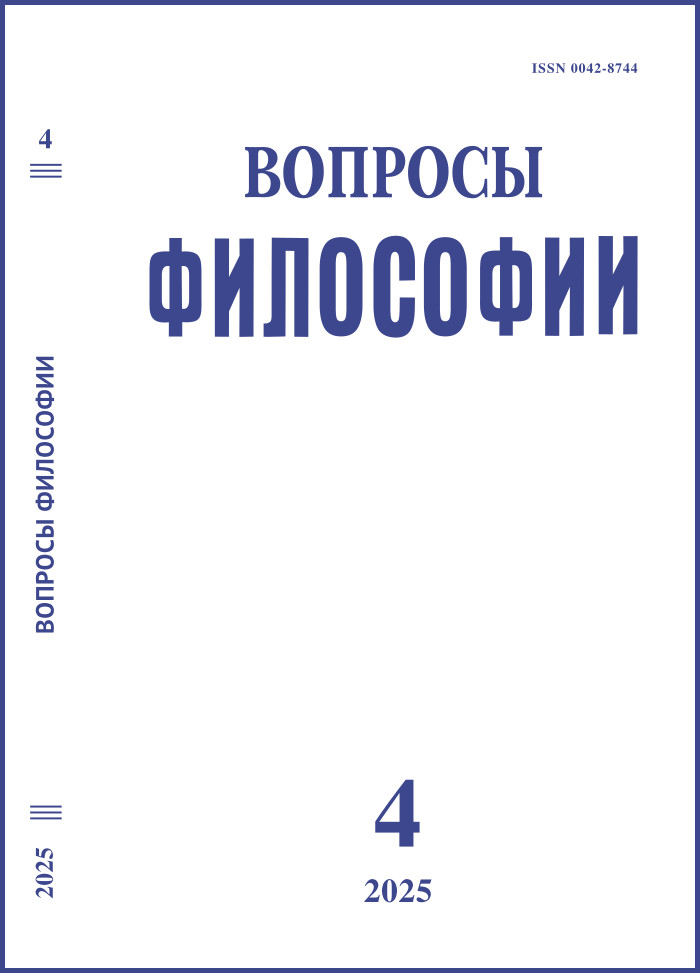The Phenomenon of Losev’s Circle: Social and Historical-Philosophical Aspects
DOI:
https://doi.org/10.21146/0042-8744-2025-4-148-157Keywords:
Losev, Takho-Godi, Losev’s circle, intellectual communities, intellectual history, modern Russian philosophy, philosophy of languageAbstract
This article is dedicated to one of the phenomena of late-Soviet intellectual “circle” culture – a community of people united by the person of A.F. Losev. This association is designated by the term “Losev’s circle” and is considered as an informal community formed around the personality of A.F. Losev and in connection with the processes of popularization of his creative heritage. The research was realized in historical-philosophical and sociological perspectives and focused at the initial theoretical definition of this phenomenon. As a working term for this community, the phrase “Losev’s circle” was used, emphasizing its informality and extra-institutional character. This article considers the significance of “circle” associations for Losev’s life and work, both those in which he himself participated (Moscow religious and philosophical society of memory of Vladimir Soloviev, the Onomatodoxy circle, etc.) and those that formed around him in the post-WWII period. The formation and activity of Losev’s circle are described chronologically. Two main stages are identified: 1960–1980s and 1990–2000s. The chatacter of people’s interaction with A.F. Losev and
A.A. Takho-Godi (teaching, secretarial activities, correspondence, etc.) and the influence of this communication on the specifics of intellectual formation of those who became “close circle” are analyzed. The relationship and “intersections” of Losev’s circle with other late-Soviet intellectual communities are shown. The nature of the existence of Losev’s circle after his death in connection with the popularization of his legacy is considered. The intellectual significance of Losev’s circle for modern Russian humanitarian science is shown on the example of the reception of Losev’s linguophilosophical ideas, which formed the basis of their own concepts and theoretical developments of V.V. Bibikhin, L.A. Gogotishvili and V.I. Postovalova (“philosophical language”, “eidetic language”, “theolinguistics”).

